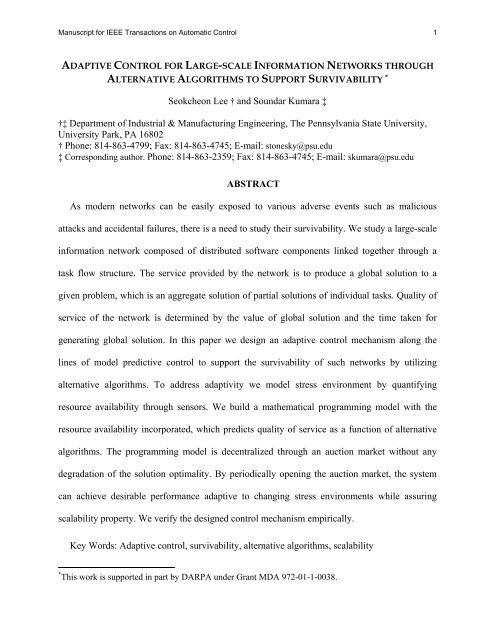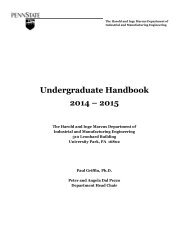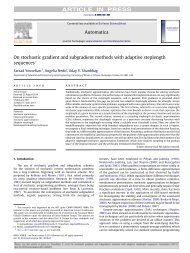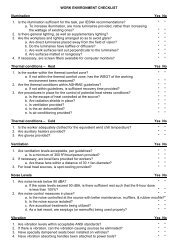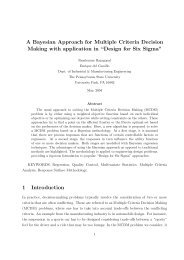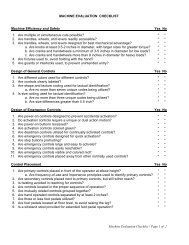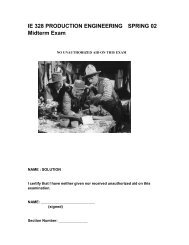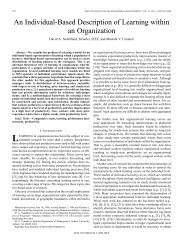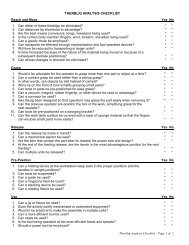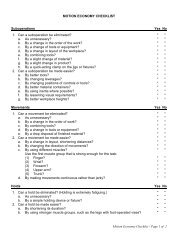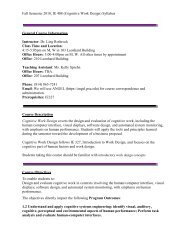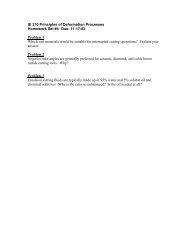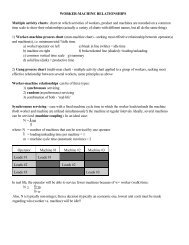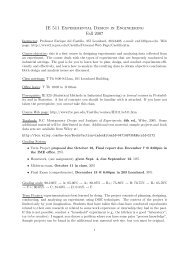DARPA ULTRALOG Final Report - Industrial and Manufacturing ...
DARPA ULTRALOG Final Report - Industrial and Manufacturing ...
DARPA ULTRALOG Final Report - Industrial and Manufacturing ...
Create successful ePaper yourself
Turn your PDF publications into a flip-book with our unique Google optimized e-Paper software.
Manuscript for IEEE Transactions on Automatic Control 1<br />
ADAPTIVE CONTROL FOR LARGE-SCALE INFORMATION NETWORKS THROUGH<br />
ALTERNATIVE ALGORITHMS TO SUPPORT SURVIVABILITY *<br />
Seokcheon Lee † <strong>and</strong> Soundar Kumara ‡<br />
†‡ Department of <strong>Industrial</strong> & <strong>Manufacturing</strong> Engineering, The Pennsylvania State University,<br />
University Park, PA 16802<br />
† Phone: 814-863-4799; Fax: 814-863-4745; E-mail: stonesky@psu.edu<br />
‡ Corresponding author. Phone: 814-863-2359; Fax: 814-863-4745; E-mail: skumara@psu.edu<br />
ABSTRACT<br />
As modern networks can be easily exposed to various adverse events such as malicious<br />
attacks <strong>and</strong> accidental failures, there is a need to study their survivability. We study a large-scale<br />
information network composed of distributed software components linked together through a<br />
task flow structure. The service provided by the network is to produce a global solution to a<br />
given problem, which is an aggregate solution of partial solutions of individual tasks. Quality of<br />
service of the network is determined by the value of global solution <strong>and</strong> the time taken for<br />
generating global solution. In this paper we design an adaptive control mechanism along the<br />
lines of model predictive control to support the survivability of such networks by utilizing<br />
alternative algorithms. To address adaptivity we model stress environment by quantifying<br />
resource availability through sensors. We build a mathematical programming model with the<br />
resource availability incorporated, which predicts quality of service as a function of alternative<br />
algorithms. The programming model is decentralized through an auction market without any<br />
degradation of the solution optimality. By periodically opening the auction market, the system<br />
can achieve desirable performance adaptive to changing stress environments while assuring<br />
scalability property. We verify the designed control mechanism empirically.<br />
Key Words: Adaptive control, survivability, alternative algorithms, scalability<br />
* This work is supported in part by <strong>DARPA</strong> under Grant MDA 972-01-1-0038.


